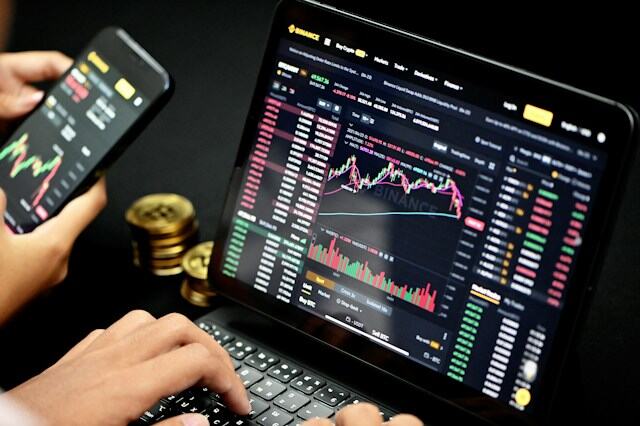Imagine a world where organizations run autonomously, governed by smart contracts rather than traditional hierarchical structures. This futuristic vision is becoming a reality with the rise of Decentralized Autonomous Organizations (DAOs) in the realm of decentralized finance (DeFi). DAOs have revolutionized how communities collaborate, make decisions, and manage resources, ushering in a new era of decentralization and transparency.
Understanding The Groundbreaking Concept of DAOs
Picture this: organizations that operate without a central authority, relying on smart contracts for decision-making. It’s like a high-tech community running itself, redefining traditional structures! DAOs are reshaping collaboration, decision-making, and resource management – it’s a whole new world of decentralization and transparency.
Definition and Concept of DAOs
Imagine a world where organizations operate autonomously, without the need for traditional management structures. Decentralized Autonomous Organizations (DAOs) embody this futuristic idea by using smart contracts to automate decision-making processes and operations. Essentially, DAOs are digital entities governed by code and community rather than a central authority, paving the way for a new era of decentralized collaboration and transparent governance.
Role of Smart Contracts in DAOs
Imagine having digital contracts that execute automatically when certain conditions are met, without the need for intermediaries. Smart contracts make this possible by encoding rules and agreements within them, ensuring transparency and trust in DAO operations. These self-executing contracts enable DAOs to automate decision-making processes, allocate resources efficiently, and enforce governance rules in a secure and decentralized manner. Smart contracts are the backbone of DAOs, enabling them to function autonomously and revolutionize traditional organizational structures.

Advantages of DAOs in DeFi
Picture a world where middlemen are a thing of the past, and every decision is made transparently and securely by a community. This futuristic concept is now a reality with DAOs, reshaping the landscape of decentralized finance with their remarkable benefits. DAOs bring a wave of advantages that not only streamline processes but also enhance trust and autonomy within the community.
Elimination of Intermediaries
Have you ever wished you could cut out the middleman and have direct control over your transactions? With DAOs, that dream becomes a reality. By eliminating intermediaries, such as banks or brokers, transactions become more efficient, cost-effective, and transparent. It’s like having a direct line to your financial decisions without unnecessary parties getting in the way.
Increased Transparency and Security
In the realm of decentralized finance, increased transparency and security are like superheroes swooping in to save the day! Imagine having a clear view of every transaction and decision within an organization, without any hidden agendas or backroom deals. That’s the power of transparency in DAOs, making it tough for any shady business to sneak in unnoticed. And when it comes to security, smart contracts acting as watchdogs ensure that everything runs smoothly and securely, protecting the community from cyber threats and fraud. It’s like having an impregnable fortress guarding all the valuable assets and actions within a DAO!
Challenges and Risks of Implementing DAOs
Picture this: as organizations shift towards decentralized structures, they face a unique set of hurdles and potential pitfalls. From navigating regulatory landscapes to safeguarding against vulnerabilities, the journey of implementing Decentralized Autonomous Organizations (DAOs) is not without its challenges.
Regulatory Considerations
When it comes to embracing Decentralized Autonomous Organizations (DAOs) in the realm of decentralized finance, it’s essential to navigate the regulatory landscape cautiously. Regulatory considerations play a crucial role in ensuring compliance with existing laws and regulations governing financial activities. Understanding the legal implications and staying abreast of evolving regulatory frameworks is vital to the successful integration of DAOs in DeFi systems. As governments and regulatory bodies continue to assess the impact of decentralized technologies, staying proactive and adaptive to compliance requirements becomes a cornerstone for the sustainable growth of DAOs in the financial ecosystem.
Vulnerabilities to Exploitation
When it comes to Vulnerabilities to Exploitation, it’s essential to be aware of potential risks in the realm of DAOs. One common vulnerability is the possibility of malicious actors manipulating decentralized governance processes for personal gain. These exploits can include fraudulent proposals, collusion, or even hacking attempts that threaten the integrity and security of DAOs. Staying vigilant and implementing robust security measures are crucial in safeguarding DAOs against exploitation.
Conclusion
The rapid emergence of Decentralized Autonomous Organizations (DAOs) presents a paradigm shift in how we perceive organizational structures and governance. As the DeFi ecosystem continues to evolve, DAOs offer a glimpse into a future where power is distributed among the community, decision-making is decentralized, and transparency is paramount. Embracing the potential of DAOs in DeFi requires navigating through challenges and risks, but the rewards of enhanced efficiency, trust, and autonomy are too substantial to ignore. The journey towards a decentralized future powered by DAOs is underway, transforming the landscape of finance and governance as we know it.







